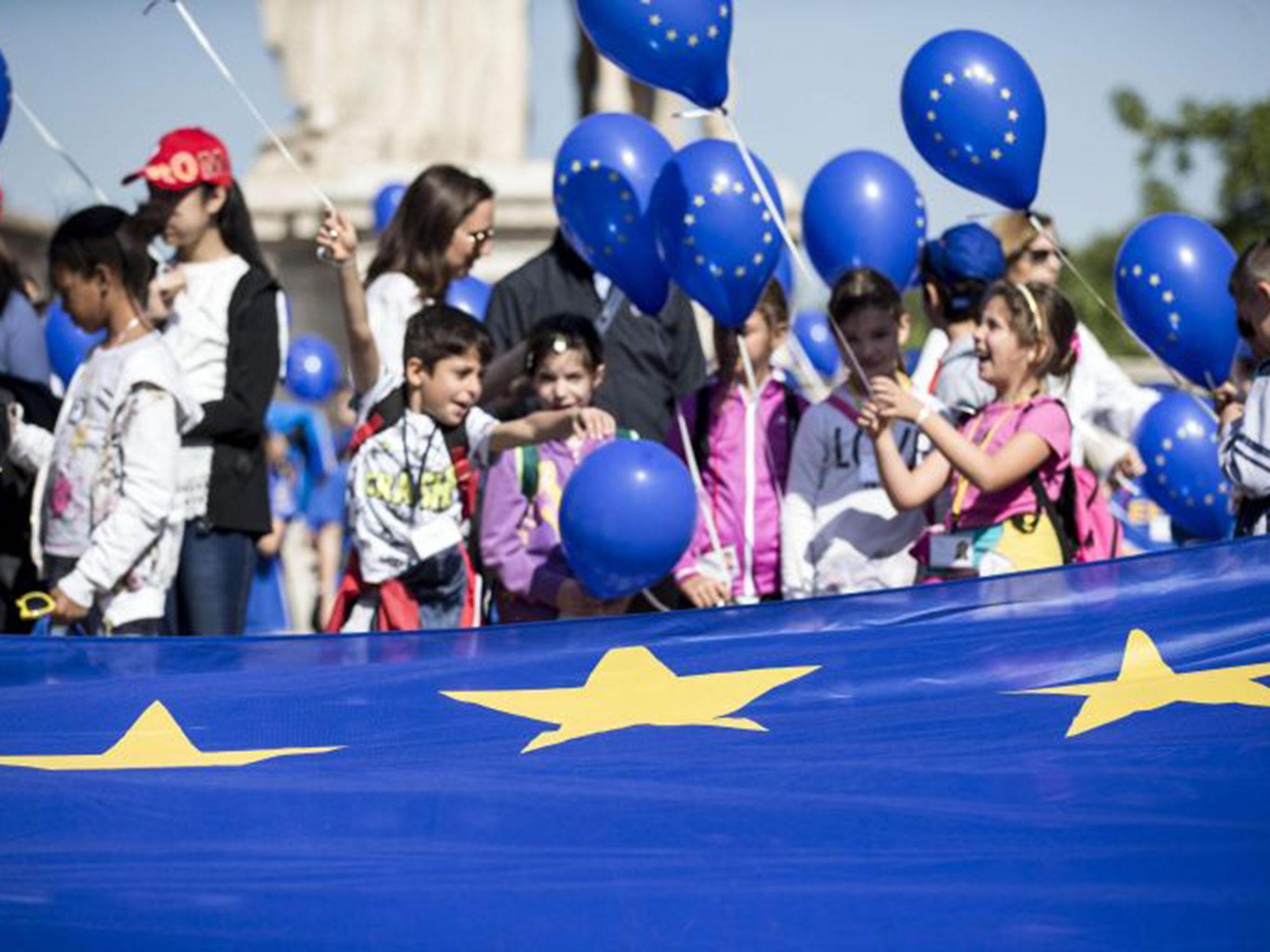After Brexit, nobody is speaking up for Europeans – and it’s a problem for the whole of Europe
To survive, the EU needs trans-European political parties. For the lack of such European advocates, many of us are losing our political voice

One group of people directly affected by the UK referendum on membership of the European Union had no vote: non-British European citizens living in the UK. Now these people feel under threat, with less political voice than ever. Will these significant numbers of Europeans remain in a country where they have no political representation and are increasingly subject to abuse and hate speech when there is nobody to speak for them?
After the referendum result, there is a much larger group of people who feel equally voiceless in speaking out: those who voted for the UK to remain in the EU, and consider themselves Europeans like the others. This is particularly the case for young British people like me who feel profoundly European and see no political party and few political leaders (with some exceptions such as Caroline Lucas) who speak for them.
The predicament of the voiceless of Britain exposes a situation that is spreading all across Europe – there is no one speaking for Europeans.

In other countries of the EU, the degrees of anti-Europeanism may not be as strong as in the UK (although opinion polls show a strong demand for referenda on EU membership in several other European countries, from France to Denmark to Hungary), but no leading political parties are defending European citizens as a group. In this environment the EU is becoming increasingly unpopular, often for unjustified reasons.
Of course, there are some genuine reasons for criticism of the EU, from its failure to adequately address the financial crisis, to its treatment of migrants, and the fact that the negotiations over trade deals such as the Transatlantic Trade and Investment Partnership (TTIP) are hidden from public view. But these are the policies of the moment; they are not sufficient to call into question the existence itself of the most successful peace project the world has ever seen.
For lack of genuine European democracy, the existence of Europe itself is consistently put in peril. The European Commission has become increasingly apolitical, able to launch legal proceedings but unable to intervene in public debate to stand up for Europe and its citizens. The European Parliament of course should play this role – but it is hamstrung by artificial political parties, which are not genuinely European, but more or less coherent collections of national parties. It is, by design, distant from the people it is supposed to represent.
There should not be one political party, or one leader, speaking for Europe; there should be many. There should be parties on the left and parties on the right, and maybe even positioned on a different spectrum by which we could measure the differences the parties and policies of Europe. But these need to be genuinely trans-European political parties, of the same dimensions as the European citizens they represent.
For the lack of such European advocates, many of us are losing our political voice. It is up to us – the voiceless of the moment – to create them, knowing that we are far from alone across Europe. When we open up spaces for us to speak, the silence will break.
Niccolo Milanese is chair of European Alternatives
Join our commenting forum
Join thought-provoking conversations, follow other Independent readers and see their replies
Comments
Bookmark popover
Removed from bookmarks